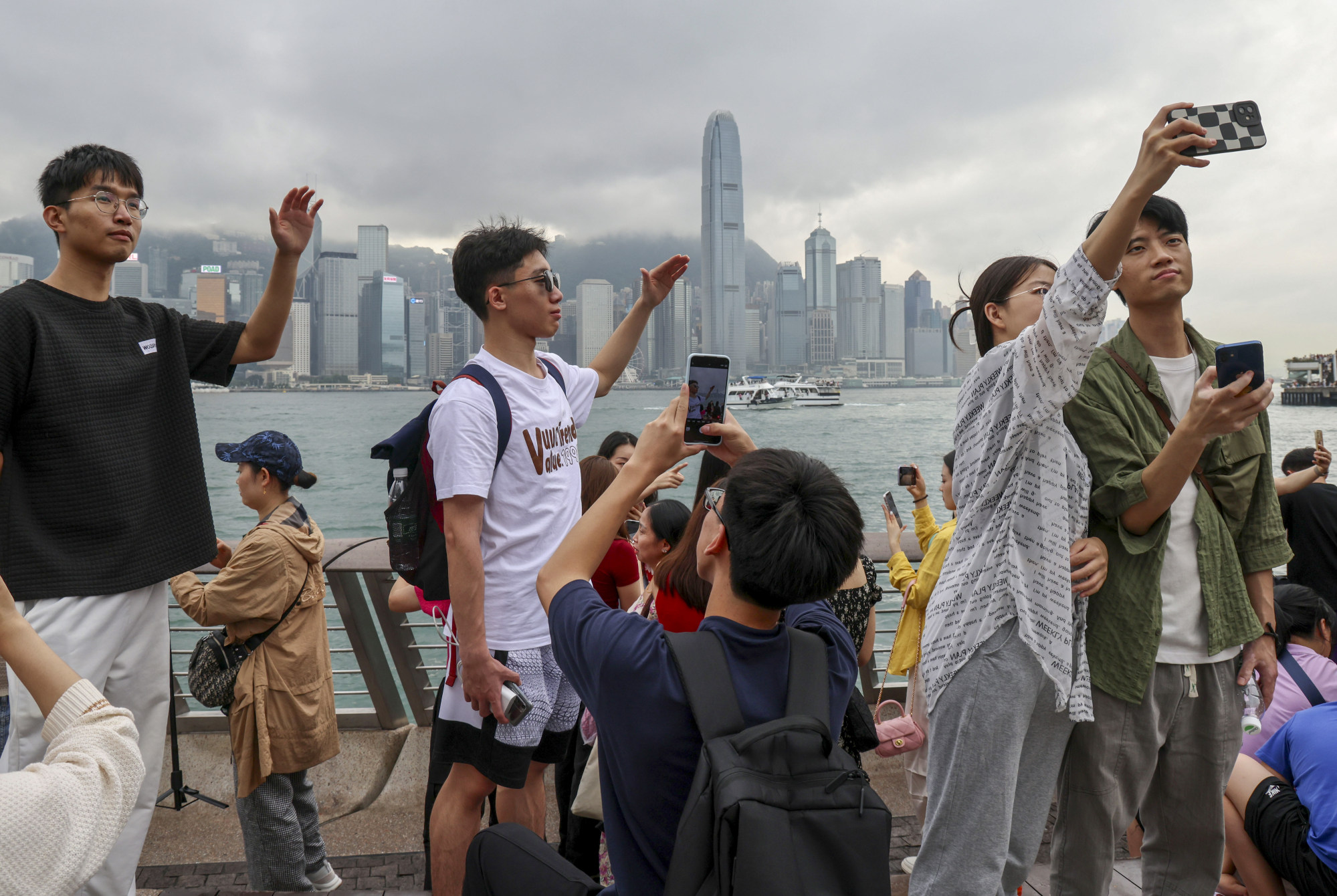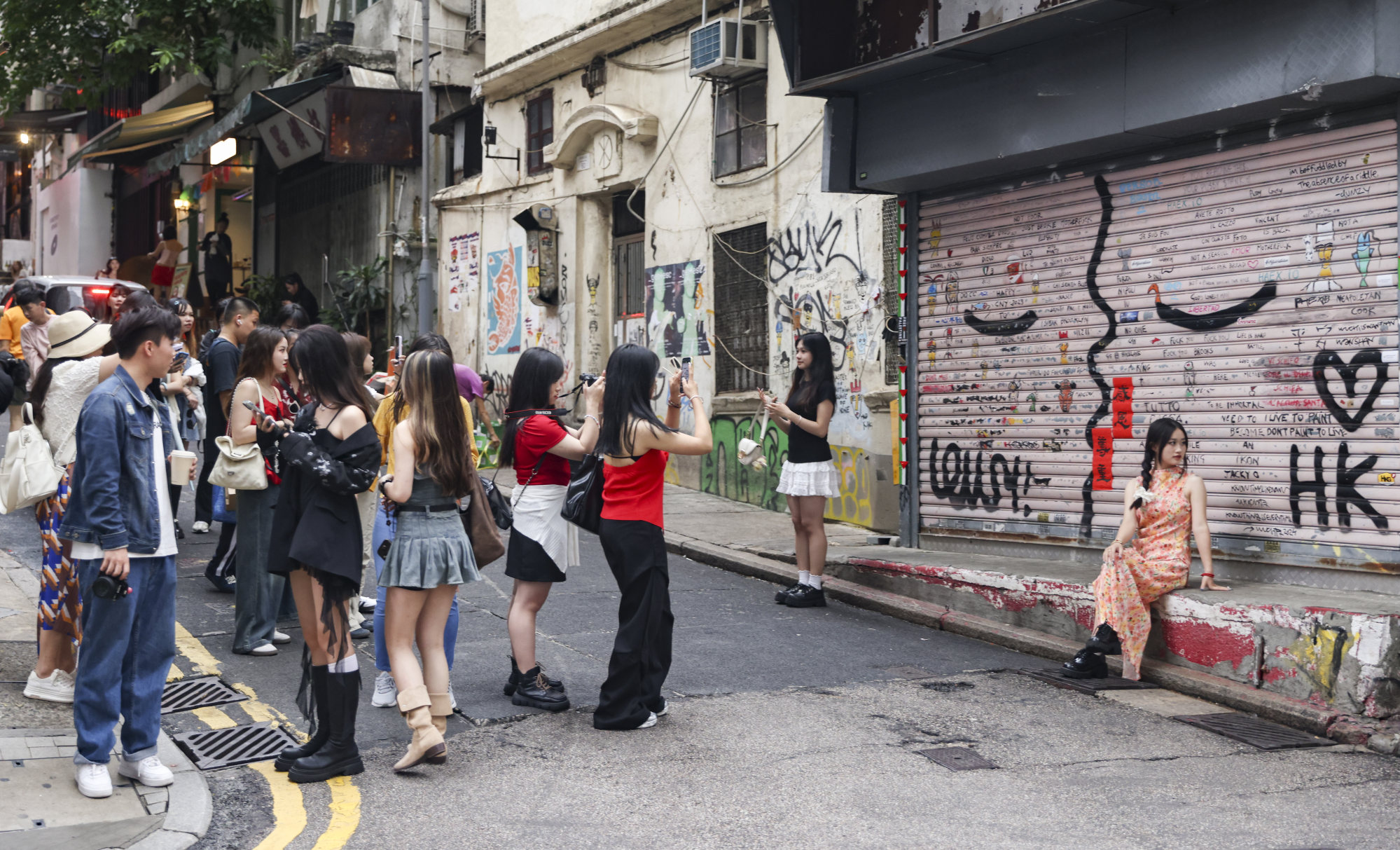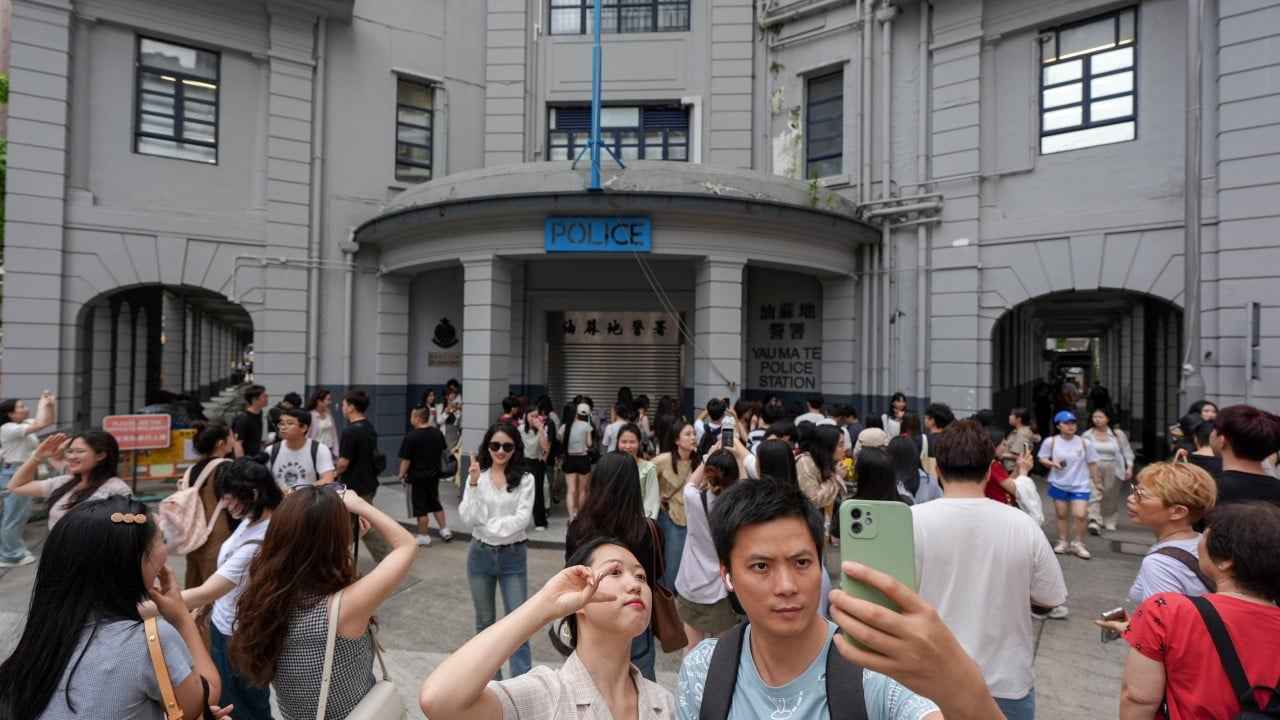Explainer | Will the expanded solo traveller scheme be ‘shot in the arm’ for Hong Kong? The Post finds out if tourism is poised for a revival
Hong Kong is looking to host more tourists from remote regions in mainland China, such as Inner Mongolia, Tibet and Xinjiang, after Beijing announced it would expand a solo traveller scheme for a second time within three months.
Starting from May 27, residents from eight mainland cities will be able to apply for the Individual Visit Scheme to travel to Hong Kong. They no longer need to join any group tour and can stay for no more than seven days at a time.
The Post explores whether changes to the scheme will be a game-changer for the city’s tourism sector.
1. What is the scheme about?
Launched in 2003, the scheme allows tourists from designated mainland cities to visit Hong Kong on their own. They can choose from single-entry or double-entry visas valid for three months or a year.
First open to Guangdong cities, namely Dongguan, Zhongshan, Jiangmen and Foshan, the scheme was credited with helping the financial hub recover from the economic downturn following the Sars epidemic.

2. Which new cities are included?
The National Immigration Administration on Saturday announced the inclusion of eight more cities, adding to the existing 51.
The eight cities are all provincial and regional capitals: Taiyuan in Shanxi; Hohhot in Inner Mongolia; Harbin in Heilongjiang; Lhasa in Tibet; Lanzhou in Gansu; Xining in Qinghai; Yinchuan in Ningxia; and Urumqi in Xinjiang.
These cites have a combined population of more than 33 million, according to the tourism industry.
In February, Beijing expanded the scheme for the first time since 2007 to the cities of Qingdao and Xian. Residents in these cities are considered as having high incomes and spending power.
3. Why was the scheme once controversial?
Despite the positive reaction from the tourism and related business sectors, the spike in mainland tourists was not always positive.
Parallel trading was a major flash point for some residents in the 2010s. These were traders who bought goods in one market to sell in another. Many residents were upset about the traders wiping shelves clean and occupying public spaces with big suitcases, while leaving a trail of trash after leaving.
Hongkongers were also worried about tourists and buyers inflating the price of goods.
Numerous protests broke out in the 2010s in areas where parallel traders were active, including Sheung Shui, Tuen Mun and Yuen Long, with protesters rallying to “reclaim” the neighbourhoods.
Officials at the time said they would need to take into account the impact of the scheme on the city’s transport and hotels, as well as the effect on local residents.

4. Why did the tide turn?
Since the reopening of Hong Kong’s border with mainland China after the Covid-19 pandemic, the recovery of the city’s hospitality and related sectors has been slow.
During the Labour Day “golden week” holiday earlier this month, the number of trips to the city hit only just two-thirds of pre-pandemic levels.
The tourism sector observed more mainland tourists tended to visit Hong Kong for day trips or chose to book cheaper accommodation across the border.
Travellers also spent less in Hong Kong as they preferred to explore the community by walking around the city instead of shopping and sightseeing at traditional areas.
Pang Yiu-kai, chairman of the Tourism Board, said he hoped the city would be able to tap into new sources of visitors with the expansion.
5. Can the changes revive Hong Kong’s economy?
Caspar Tsui Ying-wai, the executive director of the Federation of Hong Kong Hotel Owners, said the new groups of travellers were expected to stay in the city for about three days.
“Being long-haul visitors, they should plan to stay overnight here in Hong Kong and travel with a bigger budget for their trip. The new move will definitely be a real shot in the arm for the city,” he said.
In addition, Beijing’s recent extension of visa-free travel for 11 European countries could also attract Western travellers to stop over in Hong Kong when they travelled to the mainland, Tsui said.
“The Hong Kong authorities should … fight for tourists to transit in the city before they proceed to their destinations on the mainland,” he said.
But Simon Lee Siu-po, an honorary fellow at the Asia-Pacific Institute of Business at the Chinese University of Hong Kong, was less optimistic, pointing to the sluggish mainland economy with shrinking purchasing power.
The previous expansion which covered Xian and Qingdao had only generated a lukewarm response, with travel agents saying there had been no jump in bookings.


